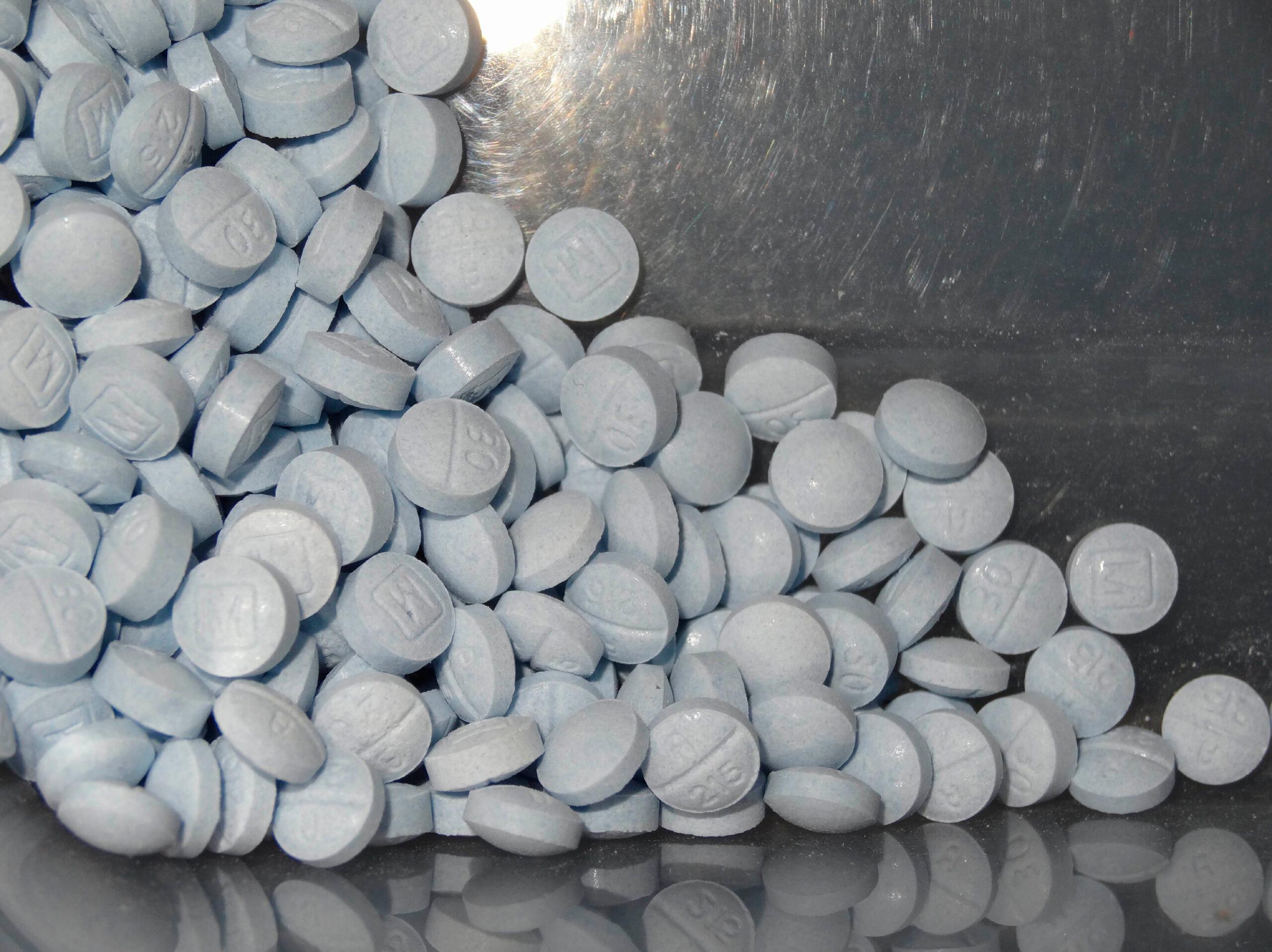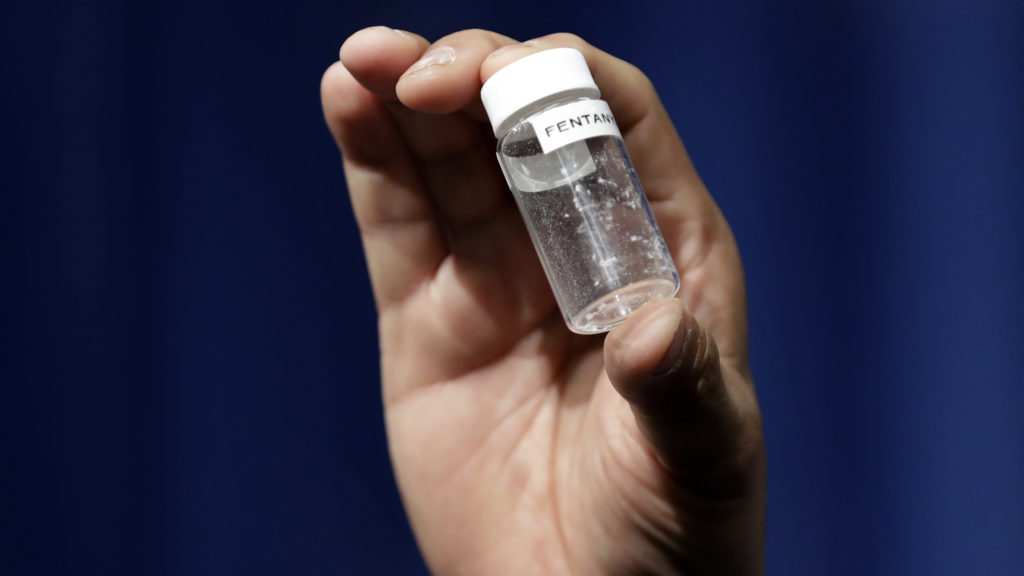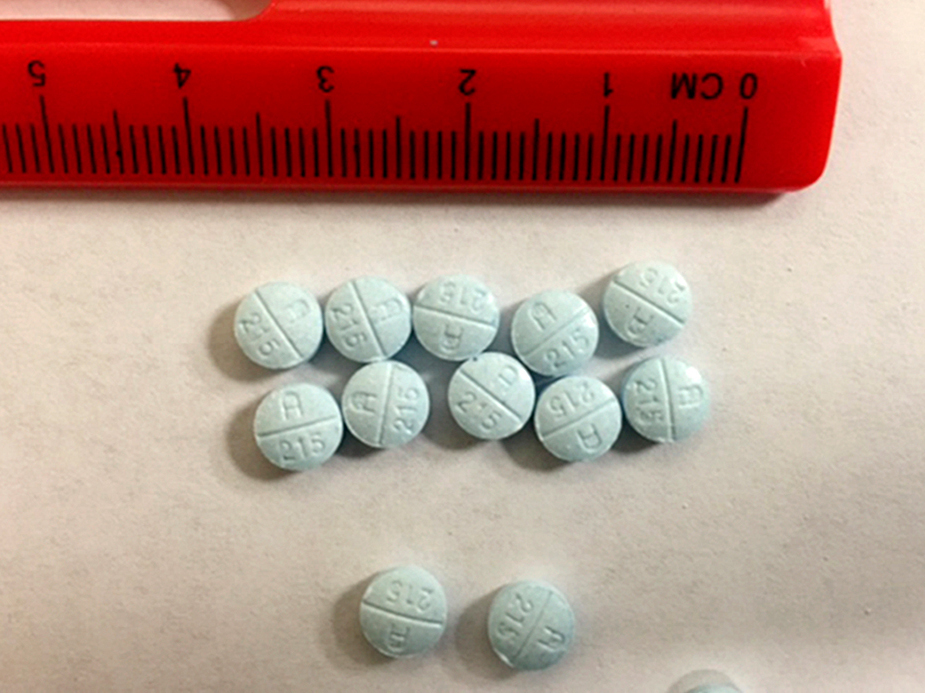
The House Judiciary committee on Wednesday amended this year’s “fentanyl accountability and prevention” bill to add new criminal penalties for the possession of the drug.
It marked one of the first time in years that the legislature has turned to harsher criminal penalties for drug possession. And it comes as policymakers and law enforcement have been debating the best way to take on Colorado’s rapid increase in fentanyl deaths.
The House Judiciary committee moved in a 7-4 vote to add felony punishments for those caught possessing at least one gram of fentanyl, or a compound — like a pill or a powder — that contains fentanyl. People possessing less than a gram also would face misdemeanors with increased penalties if they are convicted of the same offense four times.
“This isn’t the silver bullet. It is a recognition of the deadliness of fentanyl,” said House Speaker Alec Garnett, who has shepherded the bill alongside Republican Rep. Mike Lynch.

On Wednesday, Republicans tried for an even more punitive approach, including a failed attempt to make any amount of fentanyl possession a felony. That was the law in Colorado until 2020, when the state reduced the charges for having small amounts of most drugs.
"We are in a tremendous crisis. We should go back to where we started. and we should put that power back in our elected district attorneys’ hands,” said Rep. Rod Bockenfeld, a Republican.
The felony possession amendment amounts to a partial reversal of a 2019 drug de-felonization law. That bipartisan bill downgraded the punishment for possession of many drugs, including fentanyl, from a felony to a misdemeanor for amounts under 4 grams.
The debate reflects the threat and concern created by fentanyl, a synthetic substance that has come to dominate drug markets because it is potent — and lethal — in small doses. It also comes amid heightened election-year pressure to respond to the state’s rising crime rate.
While the possession amendment passed with bipartisan support, both Bockenfeld and fellow Republican Terri Carver voted against it. It also was opposed by two justice-reform Democrats, Rep. Mike Weissman and Rep. Jennifer Bacon.
Bacon said that a return to felony punishment would hurt people in its own way.
"There is no price to the life of someone,” Bacon said. “But there are multiple ways that they can be destroyed and I'm not sure we fully understand the impact of this.”

The amendment includes an exception for people who didn’t know that their drugs contained fentanyl, or couldn’t have reasonably known. They could instead face misdemeanors.
The bill also includes a “Good Samaritan” measure that would offer some legal protection for people who call for help with an overdose.
In a separate amendment, the committee added even-harsher felony punishments for those possessing drug mixtures that are more than 60-percent fentanyl. Casual users would not likely have the drug in such a pure form, since it can be deadly at much lower levels. Because of its extreme potency, a few grams of pure fentanyl can contain hundreds of doses — although the pure form of the drug is rare and expensive.
Rep. Adrienne Benavidez, a Democrat, said it was an imperfect compromise.
“This is something we may be able to get past this legislature, and that’s part of the sausage-making we do as legislators,” she said. “I know the risk this policy does and the impact it has on individuals that are struggling with substance disorders. I think, though, this is the compromise that I can personally live with.”
The previous day, the committee heard from scores of witnesses over a nearly 14-hour hearing, including many bereaved parents whose children had died from the drug. Many supported tougher criminal penalties.
“We think that 4 grams is way too much,” said Matt Riviere, whose two sons were killed by fentanyl-laced drugs and believes tougher limits could have saved their lives. “ We really believe that the possession limits need to be greatly reduced.”
Police chiefs and sheriffs argued felony charges would encourage people to complete treatment for addiction. It also allows police to charge lower-level dealers with felonies for simple possession, rather than having to prove felony intent to distribute.
Attorney General Phil Weiser pressed for harsher possession penalties, too, including a zero-tolerance limit for “pure” fentanyl.
Reformers say penalties are not the solution
Criminal justice reformers and addiction specialists say there’s no evidence that harsher criminal penalties can defer people from using addictive drugs. Felony charges damage people’s prospects for jobs and housing, creating more instability — reinforcing the conditions for addiction, they said.
Dr. Josh Barocas, an addiction researcher at the CU School of Medicine, said that decades of research doesn’t support the idea that people can be successfully forced into treatment.
“Without a true treatment infrastructure in place, this bill will have the opposite effect than you are hoping for,” he said. “You cannot mandate treatment for people who are not ready for it.”
Harm-reduction advocates say tougher limits will ensnare many people suffering from addiction, not just dealers, because users might smoke or take pills several times per day.
Beyond changing criminal penalties, the bill dedicates $20 million to distribute opiate antagonists, also known as overdose reversal drugs, such as narcan; $6 million for harm reduction grants; $3 million for medication-based treatment in jail and $300,000 for fentanyl testing kits.
Some bereaved family members at the commission opposed harsher criminal penalties, as well.
“They aren’t just going after dealers. Friends, family and fellow users are going to prison,” said Laura Cash, whose son died of a heroin overdose in 2014. She particularly opposed an element of the bill that allows prosecutors to charge drug distributors with murder.
“People who use drugs buy, sell and share with each other,” Cash said.
Other witnesses spoke about the damage that drug felonies had done to their families, including sending children into foster care.
A drug misdemeanor — the current penalty for possession under 4 grams — can result in jail, probation or fines. If a judge chooses jail, the maximum sentence is 18 months, but the result is most often probation, said criminal defense attorney H. Michael Steinberg.
In contrast, low-level drug felonies often result in prison time — an average of about 5 months served, plus 10 months probation — and bring other serious consequences.
In fact, the bill was expected to cause some $7 million in increased prison costs as it results in more incarceration over the next five years — and that estimate does not include the felony possession charges added on Wednesday.
The committee passed two additional amendments aimed at “reducing the collateral consequences” of charging more people with drug felonies. One would reduce the wait-time for sealing criminal records for people convicted of Drug Felony 4 crimes, and another would allow people incarcerated for those crimes to register and vote in elections.
A system failing families
Many of the bereaved said the criminal justice system failed them.. They accused police of doing little to investigate dealers who surreptitiously sold fentanyl-laced drugs, saying their family members had been poisoned and murdered.
Rep. Leslie Herod, a Denver Democrat, asked why local police weren’t doing more to investigate those cases. She said law enforcement are already able to prosecute drug dealers with intent-to-distribute laws, which carry felony charges. (Herod ultimately was not present for the felony possession amendment votes.)
Denver Police Chief Paul Pazen said his department is conducting hundreds of drug arrests in “open-air drug markets.”
But, he said, they need more ways to prosecute the crime.








